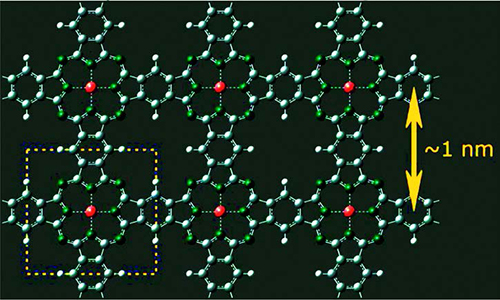Журнал "Макрогетероциклы"
Navigation
News
Impact Factor 2021 = 1.200 has been issued by ISI Web of Knowledge (JCR 2021).
Search
ISSN 1998-9539
Recent Advances in 2D Polymeric Phthalocyanines: Synthesis, Characterization, Applications and New Challenges
Vitaly I. Korepanov and Daria M. Sedlovets@
Institute of Microelectronics Technology and High Purity Materials RAS, 142432 Chernogolovka, Russia
@Corresponding author E-mail: sedlovets@iptm.ru
This article is dedicated to Prof. Dieter Wöhrle, whose works for a long time have been the highest standard and a source of inspiration for us
DOI: 10.6060/mhc190864s
Macroheterocycles 2019 12(3) 232-243
2D polyphthalocyanines (PPCs) are actively studied as advanced materials for new generation energy and microelectronics. Some time ago such compounds were dubbed “just a dream of synthetic chemists”, what was a perfect reflection of, on the one hand, high promise, and, on the other hand, experimental difficulties faced with the 2D polymers. Despite a long history of PPCs (since late 1950s), it was shown recently that in many works the reaction products were mis-interpreted, and the studied compounds should be assigned to a low degree of the polymerization. Recent years, the discovery of graphene has inspired a new wave of interest to PPCs. From the graphene point of view, the questions are: whether we can make other graphene-like materials with modified properties? Can we use metal atoms to tune its electronic properties? Can we make a magnetic 2D material? From the polymer chemistry point of view, the major problem is why the common synthetic approaches and characterization techniques didn’t work for this polymer as expected? And how to identify the reaction products? This review covers evolution of the synthetic approaches, establishment of the reliable characterization techniques, as well as the promising applications of 2D PPCs and the “new dreams” in science and technology of these materials.

| Attachment | Size |
|---|---|
| mhc190864s.pdf | 2.79 MB |
- 4009 reads
- Русский
